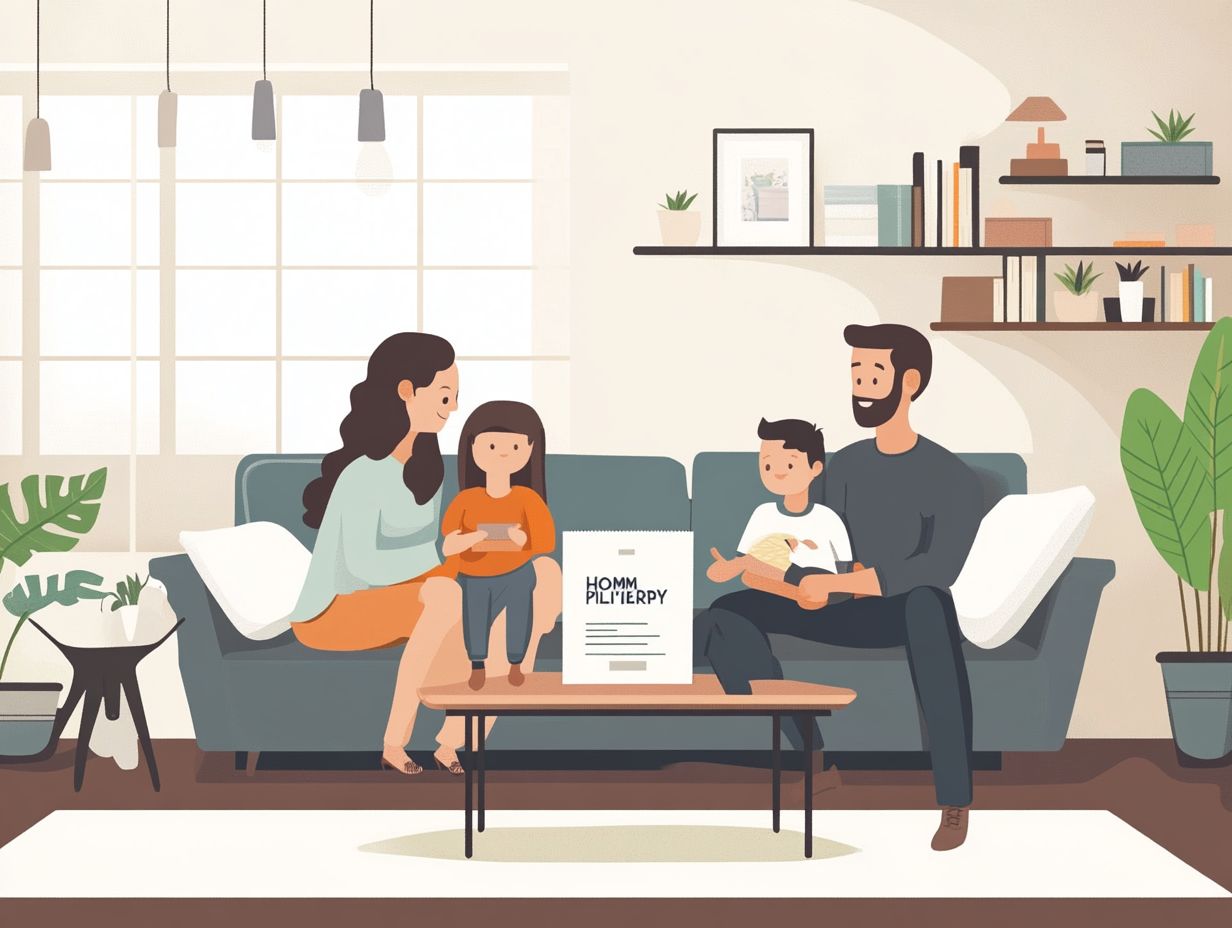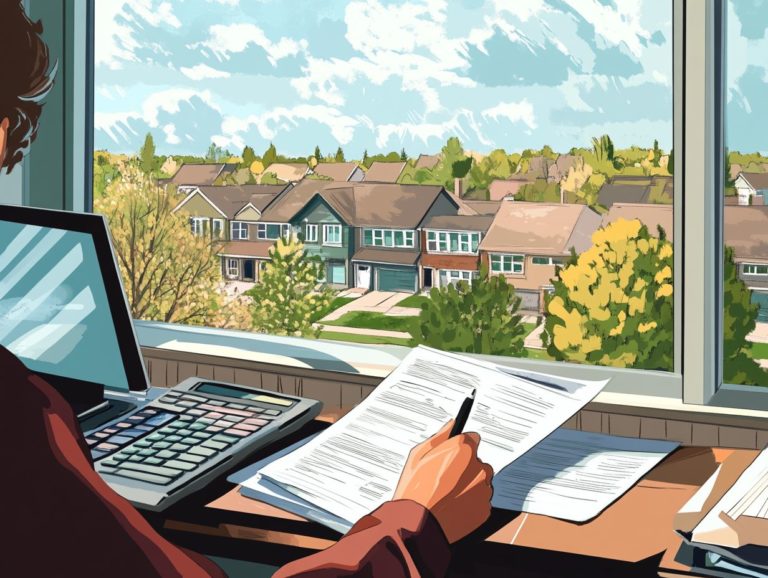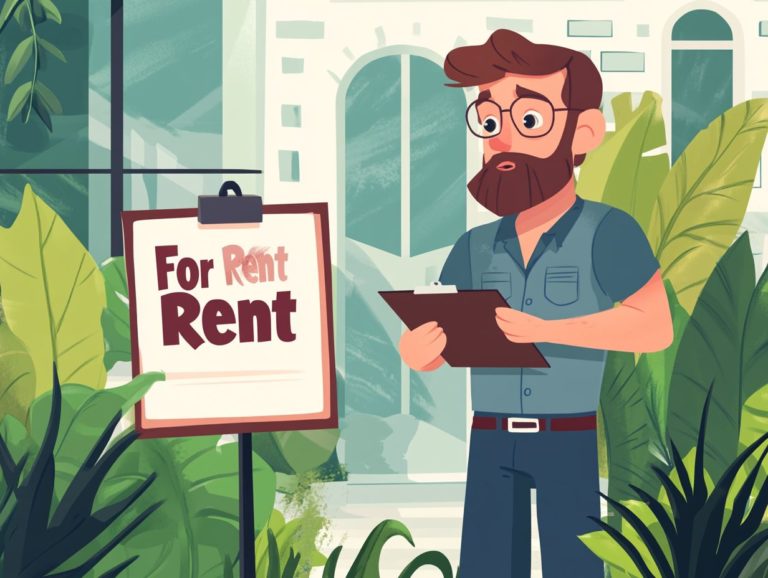Why Do You Need Home Insurance?
Home insurance transcends being merely a safety net; it serves as an essential shield for your most cherished asset: your home.
Grasping the nuances of what home insurance covers, understanding its significance, and exploring the various types available will empower you to make informed decisions.
From protecting against natural disasters to ensuring your financial security, this guide will navigate you through the complexities of home insurance.
Whether you’re a first-time buyer or contemplating a reassessment of your current policy, you’ll uncover valuable insights to help you select the right coverage tailored to your unique needs.
Contents
Key Takeaways:

Home insurance provides financial security and protection from natural disasters, making it a crucial investment for homeowners. Factors like location, home value, and personal factors can affect home insurance rates, so it’s important to choose the right policy for your needs. Understanding types of coverage and filing claims can help homeowners navigate the home insurance process and ensure they are adequately protected.
Understanding Home Insurance
Grasping the intricacies of home insurance is essential for you as a homeowner, which is a crucial safeguard against unexpected risks and liabilities that come with owning a home.
Homeowners insurance provides a range of coverage options, including:
- Dwelling coverage for the physical structure of your home
- Personal property coverage for your belongings
- Liability coverage to protect against injury claims
By understanding the nuances of these policies, you can confidently meet mortgage requirements and secure financial protection for your property.
What is Home Insurance and What Does it Cover?
Home insurance, often known as homeowners insurance, serves as your financial backup against losses from covered events like property damage, theft, and personal liability claims.
This type of policy typically includes dwelling coverage, which protects the physical structure of your home from risks such as fire, wind, or vandalism.
Personal property protection extends coverage to your belongings inside the house think of your furniture and electronics against similar threats.
Liability coverage adds another layer of security, safeguarding you from claims arising from injuries sustained on your property.
Be mindful of common exclusions, like damage caused by floods or earthquakes, which usually aren’t covered. Understanding these details can significantly impact your choice of insurance policy, ensuring you receive comprehensive protection tailored to your unique needs.
Reasons to Have Home Insurance
Don t wait for the unexpected to strike! Homeowners insurance is your best defense for securing financial protection against unforeseen losses and liabilities that may stem from covered events such as natural disasters, theft, and accidents occurring on your property.
This type of insurance protects your personal assets. It also satisfies the requirements set by mortgage lenders, providing homeowners with invaluable peace of mind.
Protection from Natural Disasters
Homeowners insurance offers essential protection against a variety of natural disasters, including floods, earthquakes, hurricanes, and tornadoes. This coverage ensures that you can recover from significant property damage without risking financial devastation.
Typically, homeowners insurance covers structural damage and personal belongings. However, you may need to consider additional policies for specific events like flooding or earthquakes.
For example, if you live in an area prone to heavy rain, securing flood insurance becomes imperative, as it can help cover the costs of repairs and replace belongings damaged by rising water levels. Likewise, earthquake insurance is crucial in seismic zones, providing peace of mind amidst the unpredictability of such events.
Picture this: you return home after a hurricane. Your basic homeowners policy may cover roof repairs and damaged appliances, but without flood insurance, valuable items stored in your basement might remain unrecoverable, leaving you with a significant financial burden.
Financial Security

Investing in homeowners insurance is an important step toward achieving your financial security. It provides essential coverage for property damage and liability claims, allowing you to reduce out-of-pocket expenses if the unexpected occurs.
Beyond this fundamental advantage, the cost of homeowners insurance can significantly impact your overall financial plan. Striking a balance between insurance premiums and other monthly expenses is vital, as unforeseen rate increases can strain your budget.
Mortgage lenders typically require proof of homeowners insurance to secure a loan, seeing it as a protective measure for everyone involved. By obtaining financial protection through insurance, you not only meet these requirements but also safeguard your investment, ensuring peace of mind as you navigate the complexities of property ownership.
Types of Home Insurance
You will find various home insurance policies available, with the standard homeowners policy standing out as the most common choice.
This policy provides a robust range of coverage options that can be customized with optional add-ons to perfectly suit your specific needs.
Basic vs Comprehensive Coverage
Basic homeowners insurance typically offers limited protection, covering only essential risks. In contrast, comprehensive coverage provides a broader safety net, encompassing a wider range of potential losses and liabilities.
Understanding these distinctions is crucial for you as a homeowner looking to protect your investment effectively. With basic coverage, you may feel reassured knowing that core hazards like fire or theft are addressed. However, this minimal approach can leave you exposed to significant gaps.
Comprehensive plans extend well beyond the basics, often including protection against dangers such as natural disasters, personal liability risks, and certain types of water damage.
While comprehensive options may come with a higher price tag, they can ultimately save you from substantial out-of-pocket expenses in the wake of a disaster. Weigh the premiums against potential coverage limits to determine the most suitable option for your financial security and peace of mind.
Factors that Affect Home Insurance Rates
Numerous factors play a significant role in shaping your homeowners insurance rates. The location of your property, its overall value, and personal elements such as your claims history all influence your insurance premium determination.
Understanding these variables enables you to make informed decisions about your coverage.
Location, Home Value, and Personal Factors
Your home’s location, its market value, and your unique characteristics as a homeowner greatly influence your homeowners insurance premiums, especially in areas prone to natural disasters, where rates tend to soar.
For example, if your home is in a coastal area, you might face higher premiums due to the risk of hurricanes and flooding. Similarly, if you live in regions prone to wildfires, like California, you could see a similar spike in coverage costs.
The market value of your property also plays a crucial role; as the value increases, so does the insurer’s potential payout, which can lead to higher premiums.
Your personal factors such as your claims history, credit score, and even the presence of security features can either lower your costs or increase them. This highlights how multifaceted premium determination can be, making it essential to consider all these elements when evaluating your insurance options.
Choosing the Right Home Insurance Policy

Selecting the ideal homeowners insurance policy requires thoughtful attention to several key factors. Consider the types of coverage available, understand the insurance requirements specific to your situation, and, importantly, seek insights from an experienced insurance agent.
This approach will help ensure that your property is adequately protected and that you make a well-informed decision.
Act now to protect your investment!
Consideraciones y consejos de comparaci n
When you’re selecting a homeowners insurance policy, it’s essential to evaluate various coverage types and consider the costs. Comparing quotes from different insurance companies can help you find the perfect fit for your unique needs.
Take the time to understand the nuances between policies. Think about dwelling coverage, personal property protection, and limits on how much the insurance will pay if someone gets hurt on your property. It s wise to assess potential additional options, such as flood or earthquake insurance, which could be crucial depending on where you live.
Reviewing customer satisfaction ratings and the financial stability of insurers offers valuable insight into their reliability. By making informed comparisons and prioritizing coverage that aligns with your personal circumstances, you can secure a policy that effectively protects your investment while maintaining affordability.
Common Home Insurance Claims
Common home insurance claims frequently stem from property damage, liability issues, and unforeseen losses. It’s crucial for you as a homeowner to grasp the intricacies of the insurance claims process.
This understanding ensures that you can navigate it seamlessly and achieve a satisfactory resolution.
Types of Claims and How to File
Homeowners insurance encompasses a range of claims, including property damage from disasters and liability claims arising from injuries on your property. Each requires a tailored approach to filing.
Beyond these typical claims, you might encounter issues such as theft, vandalism, or water damage from internal sources like burst pipes.
To navigate the claims process smoothly, adopt a systematic approach:
- Start by promptly notifying your insurance company about the incident.
- Gather thorough documentation, including photographs of the damage and any relevant receipts. This evidence is crucial for bolstering your claim.
- Accurately complete the necessary forms from your insurer and submit them without delay to sidestep any potential hold-ups.
By grasping the nuances of each claim type, you can alleviate stress and pave the way for a successful resolution.
Frequently Asked Questions
Why do you need home insurance?

Home insurance is necessary to protect your most valuable asset your home. It provides financial security in case of unexpected events such as natural disasters, theft, or accidents.
What does home insurance cover?
Home insurance typically covers damages or losses to the physical structure of your home, personal belongings, and liability for accidents that occur on your property. It can also provide coverage for additional living expenses if your home becomes uninhabitable.
Is home insurance required by law?
Home insurance is not required by law, but most mortgage lenders will require you to have it to protect their investment. Even if you own your home outright, it is still highly recommended to have home insurance for your own financial protection.
What types of events are usually covered by home insurance?
Home insurance typically covers damages or losses caused by fire, lightning, windstorms, hail, explosions, vandalism, theft, and water damage from burst pipes or plumbing accidents. However, it is vital to read your policy carefully as coverage may vary.
Can I choose the amount of coverage for my home insurance?
Yes, you can choose the amount of coverage for your home insurance based on the value of your home and personal belongings. It’s important to regularly review and update your coverage to ensure it meets your current needs.
How much does home insurance cost?
The cost of home insurance varies depending on factors such as location, size, and age of your home, as well as your desired coverage and deductible. It is important to shop around and compare quotes from different insurance companies to find the best coverage at a reasonable price.
Don’t wait secure the best coverage for your home today!





